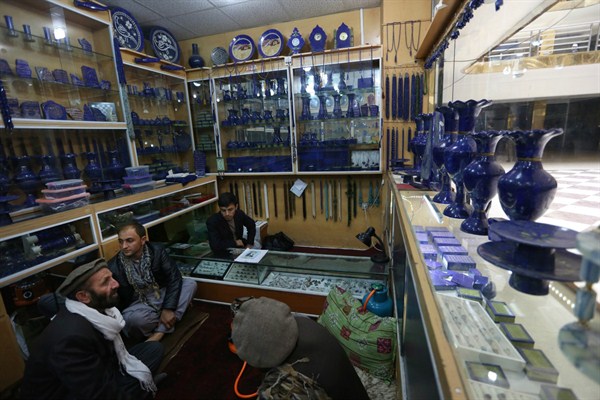Afghanistan has some of the richest mineral deposits in the world, but extracting them has proven difficult amid years of instability and war. There were modest signs of improvement in 2017, most notably the Afghan government’s ability to manage and report its earnings from mining royalties and taxes, which it couldn’t do much at all a few years ago. But challenges remain to attract more meaningful foreign investment and capitalize on the country’s resources. The Afghan Ministry of Mines and Petroleum reported earning approximately $86 million in revenues in 2017, $19 million more than it reported earning in 2016. Yet no new major contracts were signed in 2017.
The government in Kabul has long viewed the natural resources contained beneath Afghanistan’s mountains and deserts, estimated to be worth as much as $1 trillion to $3 trillion, as a potential economic panacea. But an array of problems beyond the country’s war—corruption, inadequate infrastructure, legal uncertainty, illegal mining and wavering investors—has diminished hopes for Afghanistan’s mining potential.
President Ashraf Ghani pitched the mining of Afghanistan’s lucrative rare-earth minerals, such as lithium—an essential component for building mobile phones and batteries for computers and other electronic devices—to the Trump administration in April and again in September to entice the new U.S. administration into maintaining its presence in the country after 16 years of conflict. The pitch seemed to work, as the White House declared that such initiatives “would help American companies develop materials critical to national security while growing Afghanistan’s economy and creating new jobs in both countries.” But so far these amount to a tentative agreement and gestures of goodwill.

